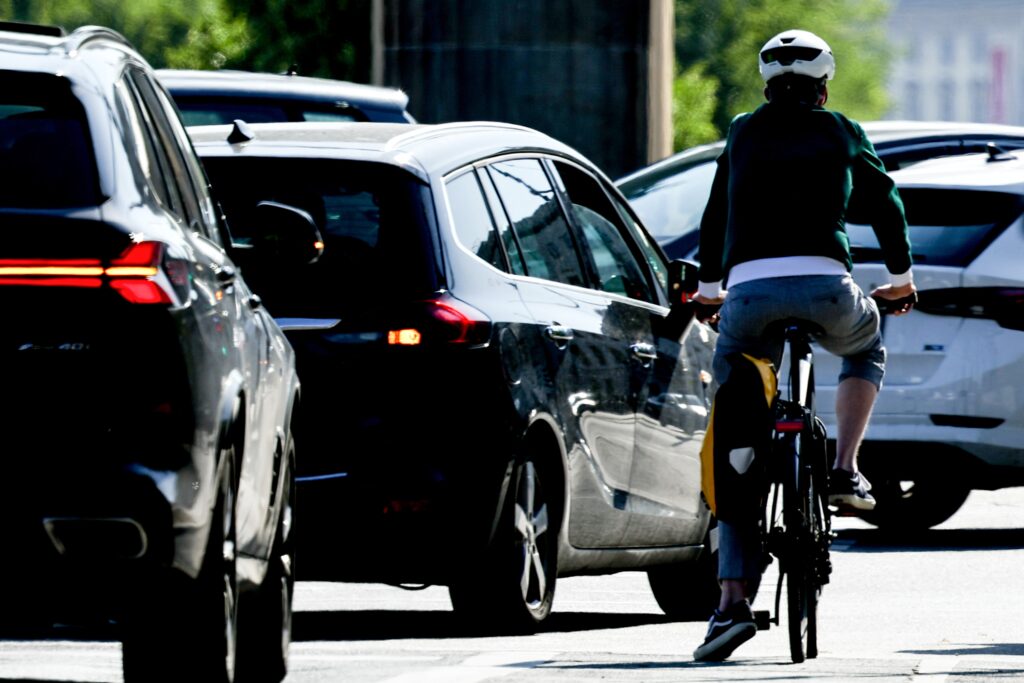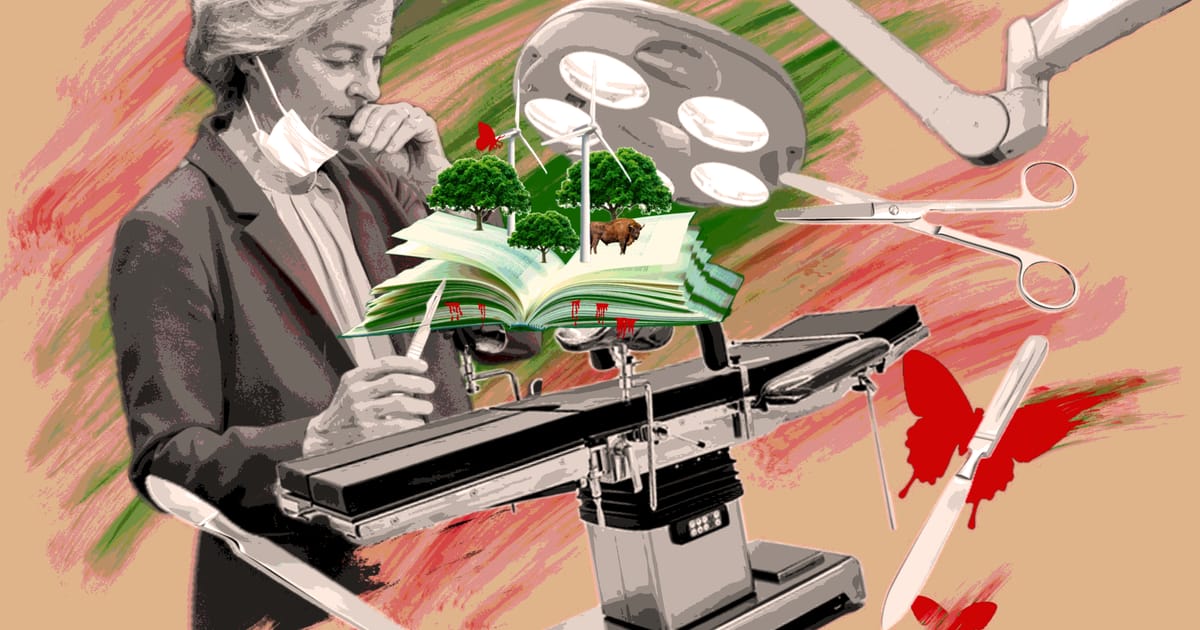The Commission has binned requirements for companies to report on their environmental impacts and exposure to climate risks. It has watered down a ban on the sale of combustion engine vehicles by 2035. It has killed a law controlling pesticides. The list could go on.
Meanwhile, the prospect of an attempt to regulate carbon pollution from agriculture — a major emitter — has faded.
Frustration has been mounting among those political groups that want to preserve a full-bodied vision of the Green Deal. They argue that the climate, nature and corporate responsibility drives are all interlinked, and that companies and citizens need to be given a clear sense of direction.
Meanwhile, the impacts of spiraling declines in biodiversity, natural habitats and the stability of the climate grow worse by the day.
 It has watered down a ban on the sale of combustion engine vehicles by 2035. | Filip Singer/EPA
It has watered down a ban on the sale of combustion engine vehicles by 2035. | Filip Singer/EPA
“All this demonization of the climate policies … creates a lot of uncertainty,” said Vula Tsetsi, co-chair of the European Green Party. It is von der Leyen’s role, she said, “to defend what for her has been so important in the previous legislation, meaning the Green Deal. And she should not give up.”
Last Friday, von der Leyen seemed to make her most dramatic concession yet to Weber’s demands. After the EPP and far-right groups pushed the Commission to ditch an anti-greenwashing measure, the EU executive seemed to indicate it would withdraw the bill.
